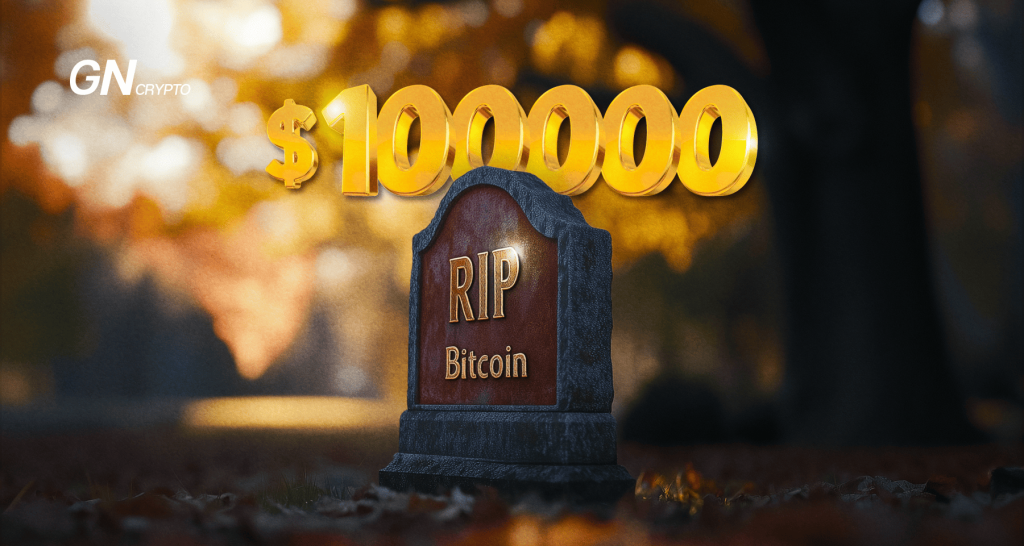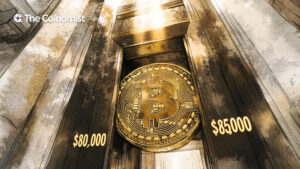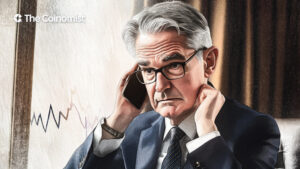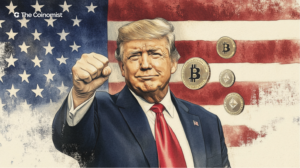Which Bitcoin Skeptics Have Changed Their Stance?

It’s official—Bitcoin has hit the psychological milestone of $100,000, a goal nearly 15 years in the making. During that time, many predicted its failure and ridiculed its investors, but like Duncan MacLeod, BTC has repeatedly risen from the ashes.
On this page
“Respected experts” and casual observers have repeatedly written off BTC as a doomed asset. They forecasted its collapse and disappearance from the financial world. However, every “obituary” has only served to strengthen Bitcoin’s resolve and solidify its standing.
Now that Bitcoin has achieved this historic milestone, it’s the perfect time to reflect on the most famous skeptics who once forecasted its downfall.
Olaf Carlson-Wee: Bitcoin Will Never Be a Currency
In January 2017, when Bitcoin first broke the $1,000 barrier, Olaf Carlson-Wee, a digital industry pioneer and one of Coinbase’s earliest employees, claimed that Bitcoin was destined to remain a niche asset. At the time, he argued that comparing cryptocurrency to traditional currency was like comparing apples to oranges. According to Olaf, the world already had efficient fiat-based payment systems, making the need for an additional digital currency highly questionable.
Olaf Carlson-Wee earned hundreds of millions in the crypto market. Source: BBC
Today, however, Olaf has made hundreds of millions of dollars in the DeFi market and is a vocal proponent of decentralized financial services. His most profitable investment has been in Ethereum (Carlson-Wee is a close associate of Vitalik Buterin and was involved in the development of the Ethereum platform).
The former Bitcoin skeptic’s net worth is now approaching a billion dollars. His new penthouse in Soho is a showcase of extravagant luxury, featuring gold columns, snake-shaped leather furniture, massive crystal chandeliers, a bathroom adorned with gold, and a large mirrored ceiling. Carlson-Wee also owns a mansion in the Hollywood Hills with ocean views and a garage that holds ten cars.
Mark Cuban: Bitcoin Is In a Bubble
Billionaire and entrepreneur Mark Cuban once forecasted a bleak future for Bitcoin. Between 2014 and 2017, he was one of the most outspoken crypto skeptics. At one point, his tweets alone caused Bitcoin’s price to drop by nearly 50%. This wasn't related to when he lost almost $870,000 in a crypto scam—it happened in the summer of 2017 when BTC hit $2,750.
Back then, Cuban unleashed a series of tweets labeling Bitcoin more of a religion than an investment, and sarcastically suggesting that gold makes great jewelry, while crypto does not. Within hours, Bitcoin’s price plunged to $1,600.A few years later, these tweets mysteriously disappeared from his account, but the internet remembers everything!
Mark Cuban, billionaire, Shark Tank investor, and owner of the NBA team Dallas Mavericks. Source: Forbes
Today, Cuban has transformed into a staunch crypto maximalist, now forecasting explosive growth for Bitcoin.
“You can't align the stars any better for a BTC price acceleration. How high can the price go? Way higher than you think. Remember, the market for BTC is global. And the supply has a final limit of 21m BTC, with unlimited fractionalization.”
Cuban has also launched his own platform, MCC (Mark Cuban Companies), which offers a suite of services, including:
- Cryptocurrency monetization for digital content;
- An NFT marketplace for collectors;
- Management of DeFi assets;
- Tokenization of non-financial assets.
That said, Cuban’s main crypto investments remain focused on ETH, which he considers to have enormous commercial potential.
Jamie Dimon: Bitcoin Is a Ponzi Scheme
Jamie Dimon, CEO of JPMorgan Chase, has long been recognized as one of the most vocal critics of cryptocurrencies. He has repeatedly described Bitcoin as a fraudulent asset, claiming it enables criminals.
“If you mean crypto like bitcoin, I've always said it's a fraud.”
To Dimon's credit, he has consistently stood by his views, never retracting his comments or deleting posts. He even once said that if he were in government, he would ban cryptocurrencies entirely.
Jamie Dimon, CEO of JPMorgan Chase. Source: CNN
That said, his personal antipathy toward cryptocurrencies hasn’t stopped JPMorgan Chase from diving headfirst into the crypto space. The bank has actively pursued blockchain innovation, attracted institutional investments into the crypto market, and even launched JPM Coin, a stablecoin backed by the US dollar.
JPMorgan Chase has also established its own crypto lab, with a team of 50 developers working on Web3 projects, including creating digital wallets and applications for tokenizing real-world assets (RWA).
Related: Tokenization of Real-World Assets (RWA): A Comprehensive Review
It seems Dimon’s outspoken skepticism toward cryptocurrencies doesn’t prevent JPMorgan from leveraging blockchain technology to generate billions.
Howard Marks: Bitcoin Isn’t Real!
Howard Marks, billionaire investor and founder of Oaktree Capital Management, has consistently voiced skepticism about cryptocurrencies like Bitcoin, Ethereum, and others, claiming that they aren’t real.
In a 2017 memo, Marks argued that digital assets lack intrinsic value, making them unreliable investments.
He attributed the growing popularity of cryptocurrencies to two main factors: a general mistrust in traditional financial systems and younger generations' fascination with virtual worlds. Marks was adamant that cryptocurrencies lacked long-term potential.
“Some people are eager to speculate on digital currency for profit. Others want to put a little money into these to-date-profitable phenomena rather than run the risk of missing out. But they’re not real,” he wrote.
By 2020, however, Marks had softened his stance slightly. In a follow-up article, he reflected on his earlier skepticism: “Back in 2017, my memo There They Go Again . . . Again included a section on cryptocurrencies in which I expressed a high level of skepticism. This view has been a source of much discussion for me and Andrew, who is quite positive on Bitcoin and several others and thankfully owns a meaningful amount for our family. While the story is far from fully written, the least I can say is that my skeptical view has not borne out to date. Thus, I’ve concluded (with Andrew’s help) that I’m not yet informed enough to form a firm view on cryptocurrencies. ”
By 2024, Marks further eased his criticism, comparing Bitcoin to gold. He suggested that both assets derive their value purely from market perception, as opposed to government-backed instruments like bonds or Treasury notes.
By this logic, any work of art also lacks fundamental value, since state obligations don’t back it—don’t you agree?
Howard Marks, founder of Oaktree Capital. Source: Forbes
Despite his personal skepticism, Oaktree Capital Management has actively embraced cryptocurrency opportunities. The firm recently established a dedicated division to explore high-potential investments in virtual currencies.
Warren Buffett: Bitcoin Is Rat Poison!
Renowned investor Warren Buffett, whose personal fortune exceeds $150 billion, is famous for his conservative approach to investing and his outspoken criticism of cryptocurrencies.
Buffett has long dismissed Bitcoin and other digital currencies as “bubbles,” arguing they lack intrinsic value. He believes these assets neither produce income nor hold utility, with their worth entirely dependent on volatile demand. Over the years, his colorful descriptions of Bitcoin have become popular memes.
“If you told me you own all of the Bitcoin in the world and you offered it to me for $25, I wouldn’t take it because what would I do with it? I’d have to sell it back to you one way or another. It isn’t going to do anything.”
Berkshire Hathaway, Buffett’s investment firm, traditionally invests in securities with proven returns and long-term stability, a stark contrast to the speculative nature of cryptocurrencies.
Warren Buffett is one of the most successful investors in the world. Source: NYT
Despite Buffett’s public stance, Berkshire Hathaway’s investment portfolio contains an intriguing paradox. In 2022, Buffett invested more than $750 million in Nu Holdings, a Brazilian fintech company actively engaged in the Web3 market. Nu Holdings offers its customers the ability to trade various cryptocurrencies, including its proprietary token, Nucoin.
This raises the question: why would Berkshire Hathaway invest in a company that thrives on the crypto space Buffett so openly criticizes?
The answer is clear: the investment paid off quickly. Nu Holdings' shares achieved an impressive 100% growth in 2023 and 2024, delivering significant returns for Berkshire Hathaway.
On one hand, Buffett, at least in his public rhetoric, remains steadfast in his principles, continuing to criticize cryptocurrencies. On the other hand, his investment fund allocates substantial capital to businesses operating in the crypto industry. This demonstrates that even the most traditional investors are compelled to adapt to changing market dynamics, seeking new avenues for profit.
As a result, those who once rushed to proclaim Bitcoin’s downfall now readily invest in what they once derided as a “bubble,” “rat poison,” or “financial pyramid.”
The content on The Coinomist is for informational purposes only and should not be interpreted as financial advice. While we strive to provide accurate and up-to-date information, we do not guarantee the accuracy, completeness, or reliability of any content. Neither we accept liability for any errors or omissions in the information provided or for any financial losses incurred as a result of relying on this information. Actions based on this content are at your own risk. Always do your own research and consult a professional. See our Terms, Privacy Policy, and Disclaimers for more details.






























